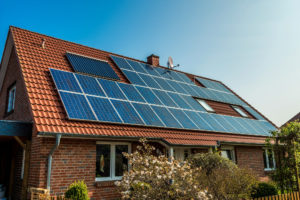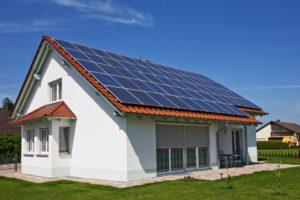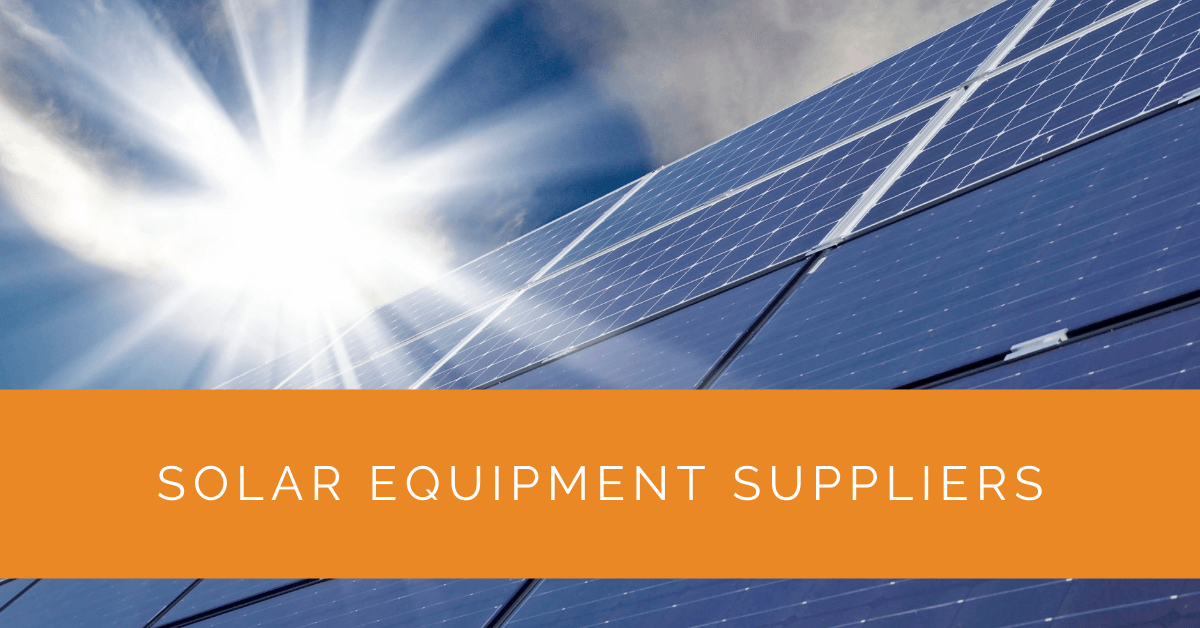In the quest for harnessing the power of solar energy, choosing the right solar equipment supplier is paramount. As the backbone of your solar system, suppliers play a crucial role in providing high-quality solar panels, inverters, and other components. In this comprehensive guide, we will explore the world of solar equipment suppliers, highlighting their importance, discussing key considerations when selecting a supplier, and providing valuable insights to help you make informed decisions.
Contents
- 1 Key Takeaways
- 2 Understanding Solar Equipment Suppliers
- 3 Key Considerations When Choosing a Solar Equipment Supplier
- 4 Choosing the Right Solar Equipment Supplier
- 5 Partnering with Solar Equipment Suppliers
- 6 Case Study: Partnering with a Reliable Solar Equipment Supplier for a Residential Project
- 7 Expert Insights From Our Solar Panel Installers About Choosing Solar Equipment Suppliers
- 8 Experience Solar Excellence with Us!
- 9 Conclusion
Key Takeaways
- Choosing the right solar equipment supplier is crucial for the success of your solar power system, and it involves considering factors such as quality, product range, pricing, and support.
- Thorough research, seeking recommendations, and comparing quotes are essential steps in selecting a reliable supplier that meets your specific solar system needs.
- Building a strong relationship with the supplier and effective communication is vital for smooth collaboration, whether for off-grid projects, DIY solar, or working with professional installers.
Understanding Solar Equipment Suppliers
What Are Solar Equipment Suppliers?
Solar equipment suppliers play a crucial role in the solar energy ecosystem. These entities specialize in providing a wide range of solar equipment, including solar panels, inverters, batteries, mounting systems, and other related components. Suppliers sourcing and distributing these essential components ensure the availability and accessibility of reliable solar solutions for residential, commercial, and industrial applications.
Types of Solar Equipments Suppliers
Within the solar equipment supplier landscape, various types of suppliers cater to different market segments. Understanding the distinctions between these supplier types can help you make informed decisions:
- Manufacturers: Manufacturers are at the forefront of the solar industry, designing and producing solar panels, inverters, and other components. Their in-house production capabilities grant them control over the manufacturing process, allowing for customization, quality assurance, and technological advancements.
- Distributors: Distributors act as intermediaries between manufacturers and retailers or installers. They source products in bulk from manufacturers and distribute them to retailers or installers, offering a diverse selection of brands and product options to meet various customer demands.
- Wholesalers: Wholesalers focus on selling solar equipment in large quantities, often catering to solar installers and professionals. They establish partnerships with manufacturers and distributors, enabling them to provide cost-effective solutions, bulk discounts, and customized offerings for larger-scale projects.
- Retailers: Retailers primarily serve individual customers, DIY enthusiasts, and smaller-scale solar projects. They curate a selection of solar panels, inverters, batteries, and related components to provide accessible options for residential installations. Retailers often offer guidance, support, and educational resources to assist customers in their solar journey.

Key Considerations When Choosing a Solar Equipment Supplier
Selecting the right solar equipment supplier requires careful consideration of several key factors. By focusing on these considerations, you can ensure the success and efficiency of your solar power system.
Quality and Reliability
One of the primary considerations when choosing a supplier is the quality and reliability of their products. Opting for suppliers known for offering high-quality solar panels, inverters, and other components is crucial for maximizing the performance and longevity of your solar system. Look for suppliers with a proven track record, certifications, and reliable warranties to ensure you receive durable and efficient equipment.
Product Range and Availability
Assessing a supplier’s product range and availability is essential to meet your specific energy requirements. Look for suppliers with a diverse selection of solar panels, inverters, batteries, and mounting systems. This variety allows you to choose the most suitable options for your solar system, whether you have specific power needs, space constraints, or aesthetic preferences. Additionally, ensure the supplier has sufficient stock and can meet your project’s timeline, avoiding potential delays or product shortages.
Pricing and Cost-effectiveness
While price should not be the sole determining factor, evaluating pricing and cost-effectiveness is crucial when selecting a supplier. Consider the overall value provided by the supplier in terms of product quality, support services, and post-sales assistance. Look for suppliers who offer competitive pricing, bulk discounts for larger orders, package deals, and information on available rebates or incentives that can help offset the upfront costs of your solar system.
Support and Expertise
Partnering with a supplier who offers exceptional support and expertise is invaluable throughout your solar journey. Consider suppliers who can provide technical assistance, guidance in system design, and after-sales support. A knowledgeable supplier will help ensure your solar system is properly configured, complies with local regulations, and optimizes. Look for suppliers who prioritize customer satisfaction and have a reputation for providing reliable support throughout the installation and beyond.

Choosing the Right Solar Equipment Supplier
When choosing a solar equipment supplier, a systematic approach can help you make an informed decision that aligns with your needs and goals.
Research and Recommendations
Conducting thorough research and seeking recommendations are fundamental to finding the right supplier. Explore supplier websites, review customer testimonials, and seek input from solar installers, industry professionals, and online communities. This extensive research will provide insights into a supplier’s reputation, reliability, and customer satisfaction, enabling you to narrow your options.
Supplier Reviews and Feedback
Reading customer reviews and feedback offers valuable perspectives on the experiences of others who have worked with the supplier. Pay attention to feedback related to product quality, customer service, on-time deliveries, and overall satisfaction. Balancing positive reviews and testimonials with critical feedback will help you better understand a supplier’s strengths and potential areas for improvement.
Comparing Quotes and Proposals
Requesting quotes and proposals from multiple suppliers allows you to make a well-informed comparison. Assess pricing, product offerings, warranties, support services, and other factors relevant to your project. Consider the supplier’s responsiveness, willingness to address your specific needs, and ability to provide tailored solutions that align with your solar system requirements.
Partnering with Solar Equipment Suppliers
Once you have selected a solar equipment supplier, building a strong partnership is essential for a successful solar power system implementation.
Establishing a Relationship
Establishing a professional relationship with your chosen supplier is key. Maintain open lines of communication and foster mutual trust and understanding. This collaborative approach will facilitate smooth collaboration throughout your solar project, ensuring effective information exchange and timely support whenever required.
Off-Grid and DIY Solar Projects
Effective communication with the supplier becomes even more critical if you are embarking on an off-grid or DIY solar project. Communicate your specific requirements, project goals, and desired outcomes. Knowledgeable suppliers can guide you in selecting suitable components, designing robust and efficient systems, and ensuring self-sufficiency in your energy production.
Renewable Energy Systems and Installers
Ongoing communication with the supplier is paramount for larger-scale solar projects or when working with professional installers. Engage in regular discussions, providing details about your energy system goals, project timelines, and specific requirements. A collaborative approach ensures seamless integration of the supplied equipment into your solar power system and helps address any technical challenges.
Case Study: Partnering with a Reliable Solar Equipment Supplier for a Residential Project
Background
At Solar Panels Network USA, we prioritize providing top-quality solar solutions tailored to each client’s unique needs. One of our recent projects involved a homeowner who was eager to transition to solar energy and required guidance in selecting a reliable solar equipment supplier. This case study highlights the steps we took to ensure a successful partnership with a supplier, leading to a smooth installation and optimal system performance.
Project Overview
The homeowner aimed to reduce their carbon footprint and energy costs by installing a solar power system. They sought our expertise to identify a reputable solar equipment supplier, assess the quality of available products, and ensure the system would meet their specific energy requirements. Our goal was to facilitate a seamless collaboration between the supplier and the homeowner, ensuring the best value and performance for the solar installation.
Implementation
Initial Supplier Research
We began with comprehensive research to identify potential solar equipment suppliers. This involved evaluating suppliers based on several criteria, including product quality, range of offerings, pricing, and customer support. We also considered feedback from other industry professionals and customer reviews.
Quality and Reliability Assessment
We focused on suppliers known for high-quality solar panels, inverters, and related components. We looked for those with a proven track record, certifications, and robust warranties. Ensuring the reliability of the products was crucial for the homeowner’s long-term investment.
Product Range and Availability
To meet the homeowner’s energy needs, we sought suppliers with a diverse selection of solar panels, inverters, and batteries. This variety allowed us to tailor the solar system to the specific power requirements and roof space constraints of the property.
Pricing and Cost-effectiveness
We requested quotes from multiple suppliers to compare pricing and overall value. This included evaluating bulk discounts, package deals, and information on available rebates or incentives. Balancing cost-effectiveness with quality ensured the homeowner received the best return on investment.
Supplier Selection and Partnership
After thorough evaluation, we selected a supplier that met our criteria and aligned with the homeowner’s needs. Building a strong partnership with the supplier was essential for a successful project.
Effective Communication
We established clear communication channels with the chosen supplier. This involved regular discussions about the project’s progress, addressing any concerns, and ensuring timely delivery of the equipment.
Technical Support and Expertise
The supplier provided valuable technical support, assisting with system design and configuration. Their expertise ensured that the solar power system was optimized for maximum efficiency and performance.
Installation and Implementation
With the supplier partnership in place, we proceeded with the installation, ensuring all components were correctly integrated and functioning.
System Integration
The supplier’s technical support was invaluable during the installation process. They provided guidance on configuring the inverters and ensuring the solar panels were correctly mounted and connected.
Performance Monitoring
Post-installation, we worked with the supplier to monitor the system’s performance, ensuring it met the homeowner’s energy production expectations. Any adjustments needed were promptly addressed, maintaining optimal efficiency.
Results
Successful Installation
The collaboration between the homeowner, Solar Panels Network USA, and the chosen supplier resulted in a seamless installation process. The system was installed on time and within budget, meeting the homeowner’s energy needs.
Enhanced Energy Efficiency
The high-quality components provided by the supplier ensured the solar power system operated at peak efficiency. This led to significant reductions in the homeowner’s energy bills and a lower carbon footprint.
Long-Term Reliability
The robust warranties and reliable support from the supplier provided the homeowner with peace of mind, knowing their investment was protected and their solar system would perform effectively for years to come.
Summary
This case study demonstrates the importance of selecting a reliable solar equipment supplier and building a strong partnership for successful solar power system implementation. At Solar Panels Network USA, we guide homeowners through every step, from initial supplier research to installation and beyond. Our comprehensive approach ensures that each project benefits from high-quality components, effective communication, and expert support, leading to long-term energy savings and sustainability.
Expert Insights From Our Solar Panel Installers About Choosing Solar Equipment Suppliers
Selecting a solar equipment supplier with a proven track record of quality and reliability is essential. This ensures your solar power system will perform efficiently and last for decades.
Senior Solar Installer
An effective supplier relationship goes beyond just the initial purchase. Look for suppliers who offer excellent support and guidance throughout your solar journey.
Lead Solar Technician
Thorough research and comparing multiple quotes from different suppliers will help you find the best value for your investment. Always consider the overall service and support offered.
Solar Installation Expert
Experience Solar Excellence with Us!
Trust in Solar Panels Network USA, where our seasoned experts deliver top-quality solar solutions for homes and businesses nationwide. With a legacy of countless successful installations and a commitment to sustainable energy, we’re your reliable partner in the solar journey. Ready for a brighter, eco-friendly future? Call us now at (855) 427-0058 and harness the power of the sun!
Conclusion
Choosing the right solar equipment supplier is crucial to building a reliable and efficient solar power system. You can make an informed decision by understanding the role of different suppliers, considering key factors such as quality, product range, pricing, and support, and engaging in thorough research and comparisons. Establishing a strong partnership with your chosen supplier fosters effective collaboration, ensuring the successful implementation of your solar project. Remember to prioritize quality, assess product range and availability, consider pricing and cost-effectiveness, and seek suppliers with exceptional support and expertise. With the right solar equipment supplier, you can confidently embark on your renewable energy journey, contributing to a sustainable and cleaner future.
About the Author
Solar Panels Network USA stands at the forefront of solar energy solutions, driven by a team of seasoned solar engineers and energy consultants. With over decades of experience in delivering high-quality solar installations and maintenance, we are committed to promoting sustainable energy through customer-centric, tailored solutions. Our articles reflect this commitment, crafted collaboratively by experts to provide accurate, up-to-date insights into solar technology, ensuring our readers are well-informed and empowered in their solar energy decisions.

